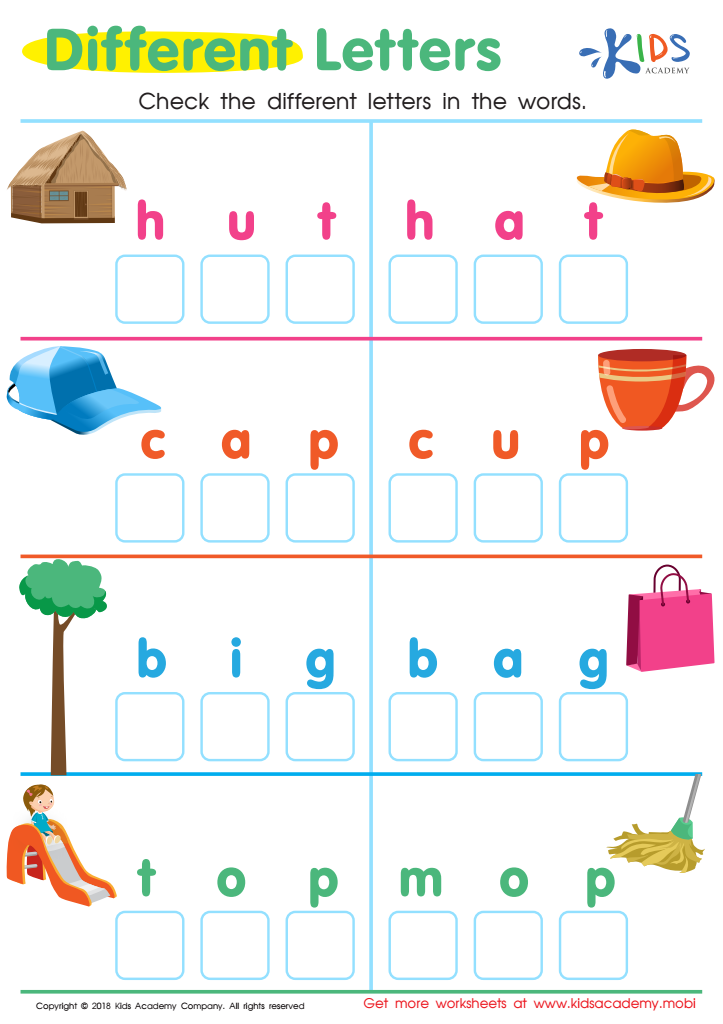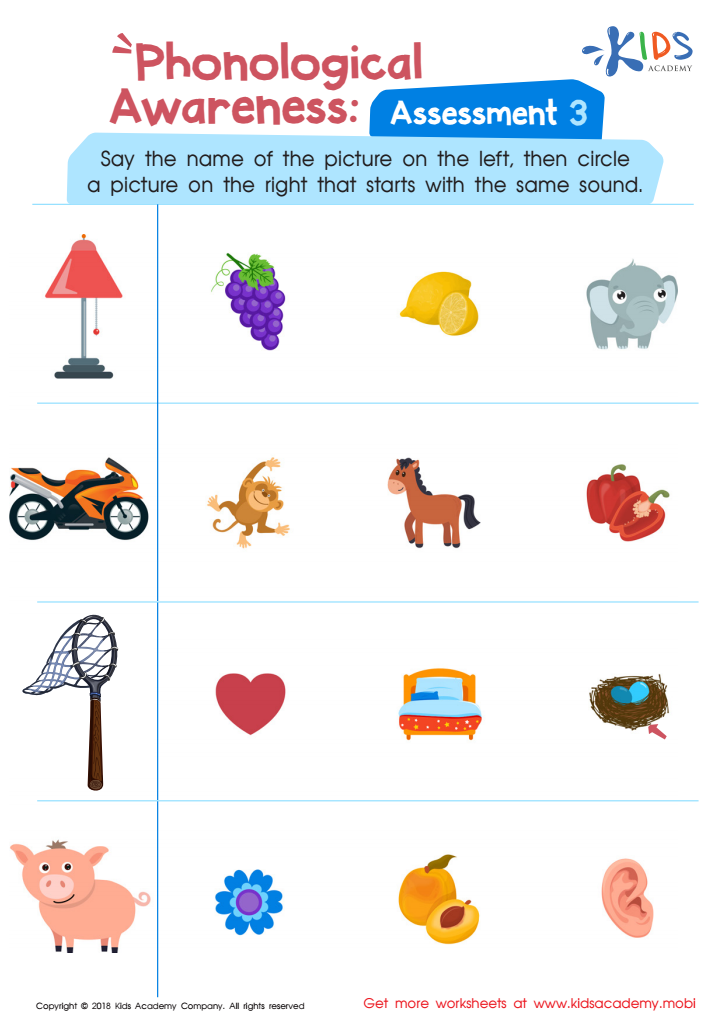Letter recognition Elementary Phonics Worksheets for Ages 5-6
5 filtered results
-
From - To
Empower your child's reading journey with our "Letter Recognition Elementary Phonics Worksheets for Ages 5-6". Perfectly designed for young learners, these engaging and educational sheets focus on mastering the alphabet through fun activities. Kids will gain confidence identifying letters, associating their sounds, and starting to form words. Ideal for both classroom and home use, these worksheets incorporate colorful, interactive exercises that captivate kids' interest and make learning enjoyable. Support your child's literacy skills and ensure they build a strong foundation in phonics with our expertly crafted materials tailored for 5-6 year olds. Explore today and watch their skills soar!


Long and Short U Worksheet


Different Letters Reading Worksheet


Phonological Awareness: Assessment 3 Worksheet


Long and Short E Worksheet


Phonological Awareness: Assessment 1 Worksheet
Letter recognition and elementary phonics are crucial building blocks for young children, especially those aged 5-6, and deserve significant attention from both parents and teachers. At this developmental stage, children are mastering foundational literacy skills that will impact their entire academic journey.
Letter recognition is the ability to identify alphabet letters by their shapes, names, and sounds. This skill is a fundamental precursor to reading and writing, as it enables children to decode words and comprehend text. When children recognize letters confidently, they can engage more effectively with classroom activities, building their self-esteem and enthusiasm for learning.
Similarly, elementary phonics, which involves understanding the relationship between letters and their associated sounds, equips children with the tools to begin phonetically decoding simple words. This skill is vital for early reading. By grasping phonics, children learn to sound out unfamiliar words, fostering independent reading skills.
Moreover, strong letter recognition and phonics skills are proven predictors of future academic success. Children who excel in these areas are more likely to develop advanced reading and comprehension skills, which are critical for all subjects.
Investing time and effort into fostering these abilities creates a strong literacy foundation, setting children on a path of lifelong learning and confidence in their educational pursuits.
 Assign to My Students
Assign to My Students










